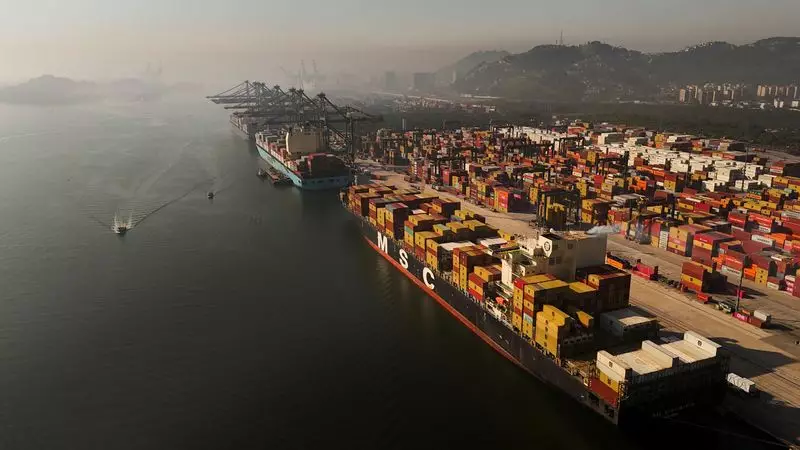In a rapidly evolving global economy, the specter of a new trade war looms large, with analysts from UBS charting a multi-stage trajectory for its potential emergence. This roadmap differentiates between various phases, each characterized by specific political and economic undertones that could come into play as soon as 2025. By breaking down the complexities into identifiable stages, UBS provides a clearer framework for understanding the potential ramifications of escalating trade tensions.
The initial “tweet phase,” already in progress, highlights the contemporary nature of trade disputes, wherein public rhetoric and social media comments often outweigh formal negotiations. This stage serves primarily as an arena for leaders to vocalize positions and establish a narrative, thereby setting the tone for subsequent phases. It acts as both a strategy for public persuasion and a method for applying pressure on trade partners even before formal measures are enacted.
Coming into play shortly after the tweet phase, the “imposition phase” is anticipated to commence in early 2025. During this timeframe, administrative frameworks will be established to prepare for tariffs on various goods, necessitating a series of procedural steps and public commentary periods. This meticulous approach is likely dictated by the need for legal compliance, ensuring that any enacted tariffs stand up to scrutiny both domestically and internationally. The exact timing, UBS notes, will depend on the political landscape and the priorities of the respective governments.
As businesses brace themselves for the implications of a trade war, the subsequent “impact phase” will witness tangible effects rippling through the economy. According to UBS, companies are likely to adopt proactive inventory management strategies in anticipation of disruptions. This defensive maneuvering is crucial, particularly given that broader economic indicators—such as trade volume and growth rates—may begin to showcase adverse effects even prior to the actual implementation of tariffs. The stakes are high, and businesses that fail to adapt may find themselves vulnerable to sudden shocks.
Parallel to these phases, the “negotiation phase” suggests that dialogue will persist throughout 2025, as nations grapple with the reality of rising tensions. UBS identifies this ongoing discourse as essential for navigating potential backlash or retaliatory measures from affected trading partners. Notably, actions such as China’s restrictive policies on critical metal exports signal an environment where trade affairs are fluid and reactions can be immediate and impactful. Thus, the reality of international trade is rife with uncertainties that require both foresight and flexibility.
Furthermore, it’s essential to recognize how the volatilities of emerging markets can become intertwined with these issues. As the potential for increased tariffs looms, currencies—particularly the Chinese yuan—are anticipated to experience significant fluctuations. Historically, we have seen such currencies struggling under similar pressures, indicating a risk of investor aversion and capital flight. The role of central banks may become crucial in stabilizing these dynamics, yet the adequacy of such measures remains an open question.
In analyzing the potential long-term repercussions of these trade tensions, UBS also underscores the intersection of trade policies with macroeconomic strategies, such as the Federal Reserve’s interest rate adjustments. A keener focus on how tariffs can instigate stagflation—a scenario marked by stagnant economic growth amidst rising inflation—forces both policymakers and business leaders to contemplate a careful balancing act. While UBS constitutes a baseline scenario that suggests moderate inflation, the risks inherent in heightened tariffs present a daunting challenge that may threaten the stability of various industries.
In summation, the path toward a potential trade war is neither straightforward nor predictable. The phased approach advocated by UBS underscores the need for careful monitoring and strategic planning as governments and businesses navigate this evolving and precarious landscape. The narrative of trade relations, characterized by social media declarations, formal negotiations, and the looming threat of tariffs, will continue to unravel, shaping the economic fabric of nations across the globe. As we forge ahead, remaining vigilant and proactive will be instrumental for all stakeholders involved.

